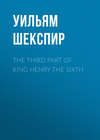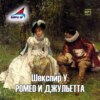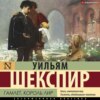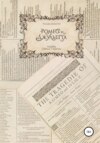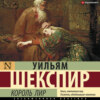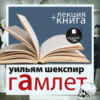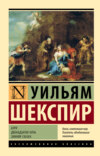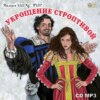Читать книгу: «The Third Part of King Henry the Sixth», страница 2
Шрифт:
SCENE III. Field of battle between Sandal Castle and Wakefield
Alarum. Enter RUTLAND and his TUTOR
RUTLAND. Ah, whither shall I fly to scape their hands?
Ah, tutor, look where bloody Clifford comes!
Enter CLIFFORD and soldiers
CLIFFORD. Chaplain, away! Thy priesthood saves thy life.
As for the brat of this accursed duke,
Whose father slew my father, he shall die.
TUTOR. And I, my lord, will bear him company.
CLIFFORD. Soldiers, away with him!
TUTOR. Ah, Clifford, murder not this innocent child,
Lest thou be hated both of God and man.
Exit, forced off by soldiers
CLIFFORD. How now, is he dead already? Or is it fear
That makes him close his eyes? I'll open them.
RUTLAND. So looks the pent-up lion o'er the wretch
That trembles under his devouring paws;
And so he walks, insulting o'er his prey,
And so he comes, to rend his limbs asunder.
Ah, gentle Clifford, kill me with thy sword,
And not with such a cruel threat'ning look!
Sweet Clifford, hear me speak before I die.
I am too mean a subject for thy wrath;
Be thou reveng'd on men, and let me live.
CLIFFORD. In vain thou speak'st, poor boy; my father's blood
Hath stopp'd the passage where thy words should enter.
RUTLAND. Then let my father's blood open it again:
He is a man, and, Clifford, cope with him.
CLIFFORD. Had I thy brethren here, their lives and thine
Were not revenge sufficient for me;
No, if I digg'd up thy forefathers' graves
And hung their rotten coffins up in chains,
It could not slake mine ire nor ease my heart.
The sight of any of the house of York
Is as a fury to torment my soul;
And till I root out their accursed line
And leave not one alive, I live in hell.
Therefore-
RUTLAND. O, let me pray before I take my death!
To thee I pray: sweet Clifford, pity me.
CLIFFORD. Such pity as my rapier's point affords.
RUTLAND. I never did thee harm; why wilt thou slay me?
CLIFFORD. Thy father hath.
RUTLAND. But 'twas ere I was born.
Thou hast one son; for his sake pity me,
Lest in revenge thereof, sith God is just,
He be as miserably slain as I.
Ah, let me live in prison all my days;
And when I give occasion of offence
Then let me die, for now thou hast no cause.
CLIFFORD. No cause!
Thy father slew my father; therefore, die. [Stabs him]
RUTLAND. Di faciant laudis summa sit ista tuae! [Dies]
CLIFFORD. Plantagenet, I come, Plantagenet;
And this thy son's blood cleaving to my blade
Shall rust upon my weapon, till thy blood,
Congeal'd with this, do make me wipe off both. Exit
SCENE IV. Another part of the field
Alarum. Enter the DUKE OF YORK
YORK. The army of the Queen hath got the field.
My uncles both are slain in rescuing me;
And all my followers to the eager foe
Turn back and fly, like ships before the wind,
Or lambs pursu'd by hunger-starved wolves.
My sons- God knows what hath bechanced them;
But this I know- they have demean'd themselves
Like men born to renown by life or death.
Three times did Richard make a lane to me,
And thrice cried 'Courage, father! fight it out.'
And full as oft came Edward to my side
With purple falchion, painted to the hilt
In blood of those that had encount'red him.
And when the hardiest warriors did retire,
Richard cried 'Charge, and give no foot of ground!'
And cried 'A crown, or else a glorious tomb!
A sceptre, or an earthly sepulchre!'
With this we charg'd again; but out alas!
We bodg'd again; as I have seen a swan
With bootless labour swim against the tide
And spend her strength with over-matching waves.
[A short alarum within]
Ah, hark! The fatal followers do pursue,
And I am faint and cannot fly their fury;
And were I strong, I would not shun their fury.
The sands are numb'red that make up my life;
Here must I stay, and here my life must end.
Enter QUEEN MARGARET, CLIFFORD, NORTHUMBERLAND, the PRINCE OF WALES, and soldiers
Come, bloody Clifford, rough Northumberland,
I dare your quenchless fury to more rage;
I am your butt, and I abide your shot.
NORTHUMBERLAND. Yield to our mercy, proud Plantagenet.
CLIFFORD. Ay, to such mercy as his ruthless arm
With downright payment show'd unto my father.
Now Phaethon hath tumbled from his car,
And made an evening at the noontide prick.
YORK. My ashes, as the phoenix, may bring forth
A bird that will revenge upon you all;
And in that hope I throw mine eyes to heaven,
Scorning whate'er you can afflict me with.
Why come you not? What! multitudes, and fear?
CLIFFORD. So cowards fight when they can fly no further;
So doves do peck the falcon's piercing talons;
So desperate thieves, all hopeless of their lives,
Breathe out invectives 'gainst the officers.
YORK. O Clifford, but bethink thee once again,
And in thy thought o'errun my former time;
And, if thou canst for blushing, view this face,
And bite thy tongue that slanders him with cowardice
Whose frown hath made thee faint and fly ere this!
CLIFFORD. I will not bandy with thee word for word,
But buckler with thee blows, twice two for one.
QUEEN MARGARET. Hold, valiant Clifford; for a thousand causes
I would prolong awhile the traitor's life.
Wrath makes him deaf; speak thou, Northumberland.
NORTHUMBERLAND. Hold, Clifford! do not honour him so much
To prick thy finger, though to wound his heart.
What valour were it, when a cur doth grin,
For one to thrust his hand between his teeth,
When he might spurn him with his foot away?
It is war's prize to take all vantages;
And ten to one is no impeach of valour.
[They lay hands on YORK, who struggles]
CLIFFORD. Ay, ay, so strives the woodcock with the gin.
NORTHUMBERLAND. So doth the cony struggle in the net.
YORK. So triumph thieves upon their conquer'd booty;
So true men yield, with robbers so o'er-match'd.
NORTHUMBERLAND. What would your Grace have done unto him now?
QUEEN MARGARET. Brave warriors, Clifford and Northumberland,
Come, make him stand upon this molehill here
That raught at mountains with outstretched arms,
Yet parted but the shadow with his hand.
What, was it you that would be England's king?
Was't you that revell'd in our parliament
And made a preachment of your high descent?
Where are your mess of sons to back you now?
The wanton Edward and the lusty George?
And where's that valiant crook-back prodigy,
Dicky your boy, that with his grumbling voice
Was wont to cheer his dad in mutinies?
Or, with the rest, where is your darling Rutland?
Look, York: I stain'd this napkin with the blood
That valiant Clifford with his rapier's point
Made issue from the bosom of the boy;
And if thine eyes can water for his death,
I give thee this to dry thy cheeks withal.
Alas, poor York! but that I hate thee deadly,
I should lament thy miserable state.
I prithee grieve to make me merry, York.
What, hath thy fiery heart so parch'd thine entrails
That not a tear can fall for Rutland's death?
Why art thou patient, man? Thou shouldst be mad;
And I to make thee mad do mock thee thus.
Stamp, rave, and fret, that I may sing and dance.
Thou wouldst be fee'd, I see, to make me sport;
York cannot speak unless he wear a crown.
A crown for York! – and, lords, bow low to him.
Hold you his hands whilst I do set it on.
[Putting a paper crown on his head]
Ay, marry, sir, now looks he like a king!
Ay, this is he that took King Henry's chair,
And this is he was his adopted heir.
But how is it that great Plantagenet
Is crown'd so soon and broke his solemn oath?
As I bethink me, you should not be King
Till our King Henry had shook hands with death.
And will you pale your head in Henry's glory,
And rob his temples of the diadem,
Now in his life, against your holy oath?
O, 'tis a fault too too
Off with the crown and with the crown his head;
And, whilst we breathe, take time to do him dead.
CLIFFORD. That is my office, for my father's sake.
QUEEN MARGARET. Nay, stay; let's hear the orisons he makes.
YORK. She-wolf of France, but worse than wolves of France,
Whose tongue more poisons than the adder's tooth!
How ill-beseeming is it in thy sex
To triumph like an Amazonian trull
Upon their woes whom fortune captivates!
But that thy face is visard-like, unchanging,
Made impudent with use of evil deeds,
I would assay, proud queen, to make thee blush.
To tell thee whence thou cam'st, of whom deriv'd,
Were shame enough to shame thee, wert thou not shameless.
Thy father bears the type of King of Naples,
Of both the Sicils and Jerusalem,
Yet not so wealthy as an English yeoman.
Hath that poor monarch taught thee to insult?
It needs not, nor it boots thee not, proud queen;
Unless the adage must be verified,
That beggars mounted run their horse to death.
'Tis beauty that doth oft make women proud;
But, God He knows, thy share thereof is small.
'Tis virtue that doth make them most admir'd;
The contrary doth make thee wond'red at.
'Tis government that makes them seem divine;
The want thereof makes thee abominable.
Thou art as opposite to every good
As the Antipodes are unto us,
Or as the south to the septentrion.
O tiger's heart wrapp'd in a woman's hide!
How couldst thou drain the life-blood of the child,
To bid the father wipe his eyes withal,
And yet be seen to bear a woman's face?
Women are soft, mild, pitiful, and flexible:
Thou stern, obdurate, flinty, rough, remorseless.
Bid'st thou me rage? Why, now thou hast thy wish;
Wouldst have me weep? Why, now thou hast thy will;
For raging wind blows up incessant showers,
And when the rage allays, the rain begins.
These tears are my sweet Rutland's obsequies;
And every drop cries vengeance for his death
'Gainst thee, fell Clifford, and thee, false Frenchwoman.
NORTHUMBERLAND. Beshrew me, but his passions move me so
That hardly can I check my eyes from tears.
YORK. That face of his the hungry cannibals
Would not have touch'd, would not have stain'd with blood;
But you are more inhuman, more inexorable-
O, ten times more- than tigers of Hyrcania.
See, ruthless queen, a hapless father's tears.
This cloth thou dipp'dst in blood of my sweet boy,
And I with tears do wash the blood away.
Keep thou the napkin, and go boast of this;
And if thou tell'st the heavy story right,
Upon my soul, the hearers will shed tears;
Yea, even my foes will shed fast-falling tears
And say 'Alas, it was a piteous deed!'
There, take the crown, and with the crown my curse;
And in thy need such comfort come to thee
As now I reap at thy too cruel hand!
Hard-hearted Clifford, take me from the world;
My soul to heaven, my blood upon your heads!
NORTHUMBERLAND. Had he been slaughter-man to all my kin,
I should not for my life but weep with him,
To see how inly sorrow gripes his soul.
QUEEN MARGARET. What, weeping-ripe, my Lord Northumberland?
Think but upon the wrong he did us all,
And that will quickly dry thy melting tears.
CLIFFORD. Here's for my oath, here's for my father's death.
[Stabbing him]
QUEEN MARGARET. And here's to right our gentle-hearted king.
[Stabbing him]
YORK. Open Thy gate of mercy, gracious God!
My soul flies through these wounds to seek out Thee.
[Dies]
QUEEN MARGARET. Off with his head, and set it on York gates;
So York may overlook the town of York.
Flourish. Exeunt
ACT II. SCENE I. A plain near Mortimer's Cross in Herefordshire
A march. Enter EDWARD, RICHARD, and their power
EDWARD. I wonder how our princely father scap'd,
Or whether he be scap'd away or no
From Clifford's and Northumberland's pursuit.
Had he been ta'en, we should have heard the news;
Had he been slain, we should have heard the news;
Or had he scap'd, methinks we should have heard
The happy tidings of his good escape.
How fares my brother? Why is he so sad?
RICHARD. I cannot joy until I be resolv'd
Where our right valiant father is become.
I saw him in the battle range about,
And watch'd him how he singled Clifford forth.
Methought he bore him in the thickest troop
As doth a lion in a herd of neat;
Or as a bear, encompass'd round with dogs,
Who having pinch'd a few and made them cry,
The rest stand all aloof and bark at him.
So far'd our father with his enemies;
So fled his enemies my warlike father.
Methinks 'tis prize enough to be his son.
See how the morning opes her golden gates
And takes her farewell of the glorious sun.
How well resembles it the prime of youth,
Trimm'd like a younker prancing to his love!
EDWARD. Dazzle mine eyes, or do I see three suns?
RICHARD. Three glorious suns, each one a perfect sun;
Not separated with the racking clouds,
But sever'd in a pale clear-shining sky.
See, see! they join, embrace, and seem to kiss,
As if they vow'd some league inviolable.
Now are they but one lamp, one light, one sun.
In this the heaven figures some event.
EDWARD. 'Tis wondrous strange, the like yet never heard of.
I think it cites us, brother, to the field,
That we, the sons of brave Plantagenet,
Each one already blazing by our meeds,
Should notwithstanding join our lights together
And overshine the earth, as this the world.
Whate'er it bodes, henceforward will I bear
Upon my target three fair shining suns.
RICHARD. Nay, bear three daughters- by your leave I speak it,
You love the breeder better than the male.
Enter a MESSENGER, blowing
But what art thou, whose heavy looks foretell
Some dreadful story hanging on thy tongue?
MESSENGER. Ah, one that was a woeful looker-on
When as the noble Duke of York was slain,
Your princely father and my loving lord!
EDWARD. O, speak no more! for I have heard too much.
RICHARD. Say how he died, for I will hear it all.
MESSENGER. Environed he was with many foes,
And stood against them as the hope of Troy
Against the Greeks that would have ent'red Troy.
But Hercules himself must yield to odds;
And many strokes, though with a little axe,
Hews down and fells the hardest-timber'd oak.
By many hands your father was subdu'd;
But only slaught'red by the ireful arm
Of unrelenting Clifford and the Queen,
Who crown'd the gracious Duke in high despite,
Laugh'd in his face; and when with grief he wept,
The ruthless Queen gave him to dry his cheeks
A napkin steeped in the harmless blood
Of sweet young Rutland, by rough Clifford slain;
And after many scorns, many foul taunts,
They took his head, and on the gates of York
They set the same; and there it doth remain,
The saddest spectacle that e'er I view'd.
EDWARD. Sweet Duke of York, our prop to lean upon,
Now thou art gone, we have no staff, no stay.
O Clifford, boist'rous Clifford, thou hast slain
The flow'r of Europe for his chivalry;
And treacherously hast thou vanquish'd him,
For hand to hand he would have vanquish'd thee.
Now my soul's palace is become a prison.
Ah, would she break from hence, that this my body
Might in the ground be closed up in rest!
For never henceforth shall I joy again;
Never, O never, shall I see more joy.
RICHARD. I cannot weep, for all my body's moisture
Scarce serves to quench my furnace-burning heart;
Nor can my tongue unload my heart's great burden,
For self-same wind that I should speak withal
Is kindling coals that fires all my breast,
And burns me up with flames that tears would quench.
To weep is to make less the depth of grief.
Tears then for babes; blows and revenge for me!
Richard, I bear thy name; I'll venge thy death,
Or die renowned by attempting it.
EDWARD. His name that valiant duke hath left with thee;
His dukedom and his chair with me is left.
RICHARD. Nay, if thou be that princely eagle's bird,
Show thy descent by gazing 'gainst the sun;
For chair and dukedom, throne and kingdom, say:
Either that is thine, or else thou wert not his.
March. Enter WARWICK, MONTAGUE, and their army
WARWICK. How now, fair lords! What fare? What news abroad?
RICHARD. Great Lord of Warwick, if we should recount
Our baleful news and at each word's deliverance
Stab poinards in our flesh till all were told,
The words would add more anguish than the wounds.
O valiant lord, the Duke of York is slain!
EDWARD. O Warwick, Warwick! that Plantagenet
Which held thee dearly as his soul's redemption
Is by the stern Lord Clifford done to death.
WARWICK. Ten days ago I drown'd these news in tears;
And now, to add more measure to your woes,
I come to tell you things sith then befall'n.
After the bloody fray at Wakefield fought,
Where your brave father breath'd his latest gasp,
Tidings, as swiftly as the posts could run,
Were brought me of your loss and his depart.
I, then in London, keeper of the King,
Muster'd my soldiers, gathered flocks of friends,
And very well appointed, as I thought,
March'd toward Saint Albans to intercept the Queen,
Bearing the King in my behalf along;
For by my scouts I was advertised
That she was coming with a full intent
To dash our late decree in parliament
Touching King Henry's oath and your succession.
Short tale to make- we at Saint Albans met,
Our battles join'd, and both sides fiercely fought;
But whether 'twas the coldness of the King,
Who look'd full gently on his warlike queen,
That robb'd my soldiers of their heated spleen,
Or whether 'twas report of her success,
Or more than common fear of Clifford's rigour,
Who thunders to his captives blood and death,
I cannot judge; but, to conclude with truth,
Their weapons like to lightning came and went:
Our soldiers', like the night-owl's lazy flight
Or like an idle thresher with a flail,
Fell gently down, as if they struck their friends.
I cheer'd them up with justice of our cause,
With promise of high pay and great rewards,
But all in vain; they had no heart to fight,
And we in them no hope to win the day;
So that we fled: the King unto the Queen;
Lord George your brother, Norfolk, and myself,
In haste post-haste are come to join with you;
For in the marches here we heard you were
Making another head to fight again.
EDWARD. Where is the Duke of Norfolk, gentle Warwick?
And when came George from Burgundy to England?
WARWICK. Some six miles off the Duke is with the soldiers;
And for your brother, he was lately sent
From your kind aunt, Duchess of Burgundy,
With aid of soldiers to this needful war.
RICHARD. 'Twas odds, belike, when valiant Warwick fled.
Oft have I heard his praises in pursuit,
But ne'er till now his scandal of retire.
WARWICK. Nor now my scandal, Richard, dost thou hear;
For thou shalt know this strong right hand of mine
Can pluck the diadem from faint Henry's head
And wring the awful sceptre from his fist,
Were he as famous and as bold in war
As he is fam'd for mildness, peace, and prayer.
RICHARD. I know it well, Lord Warwick; blame me not.
'Tis love I bear thy glories makes me speak.
But in this troublous time what's to be done?
Shall we go throw away our coats of steel
And wrap our bodies in black mourning-gowns,
Numbering our Ave-Maries with our beads?
Or shall we on the helmets of our foes
Tell our devotion with revengeful arms?
If for the last, say 'Ay,' and to it, lords.
WARWICK. Why, therefore Warwick came to seek you out;
And therefore comes my brother Montague.
Attend me, lords. The proud insulting Queen,
With Clifford and the haught Northumberland,
And of their feather many moe proud birds,
Have wrought the easy-melting King like wax.
He swore consent to your succession,
His oath enrolled in the parliament;
And now to London all the crew are gone
To frustrate both his oath and what beside
May make against the house of Lancaster.
Their power, I think, is thirty thousand strong.
Now if the help of Norfolk and myself,
With all the friends that thou, brave Earl of March,
Amongst the loving Welshmen canst procure,
Will but amount to five and twenty thousand,
Why, Via! to London will we march amain,
And once again bestride our foaming steeds,
And once again cry 'Charge upon our foes!'
But never once again turn back and fly.
RICHARD. Ay, now methinks I hear great Warwick speak.
Ne'er may he live to see a sunshine day
That cries 'Retire!' if Warwick bid him stay.
EDWARD. Lord Warwick, on thy shoulder will I lean;
And when thou fail'st- as God forbid the hour! -
Must Edward fall, which peril heaven forfend.
WARWICK. No longer Earl of March, but Duke of York;
The next degree is England's royal throne,
For King of England shalt thou be proclaim'd
In every borough as we pass along;
And he that throws not up his cap for joy
Shall for the fault make forfeit of his head.
King Edward, valiant Richard, Montague,
Stay we no longer, dreaming of renown,
But sound the trumpets and about our task.
RICHARD. Then, Clifford, were thy heart as hard as steel,
As thou hast shown it flinty by thy deeds,
I come to pierce it or to give thee mine.
EDWARD. Then strike up drums. God and Saint George for us!
Enter a MESSENGER
WARWICK. How now! what news?
MESSENGER. The Duke of Norfolk sends you word by me
The Queen is coming with a puissant host,
And craves your company for speedy counsel.
WARWICK. Why, then it sorts; brave warriors, let's away.
Exeunt
Возрастное ограничение:
12+Дата выхода на Литрес:
30 ноября 2017Объем:
100 стр. 1 иллюстрацияПравообладатель:
Public Domain
